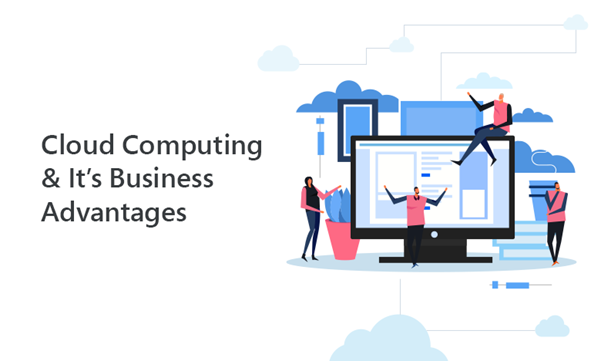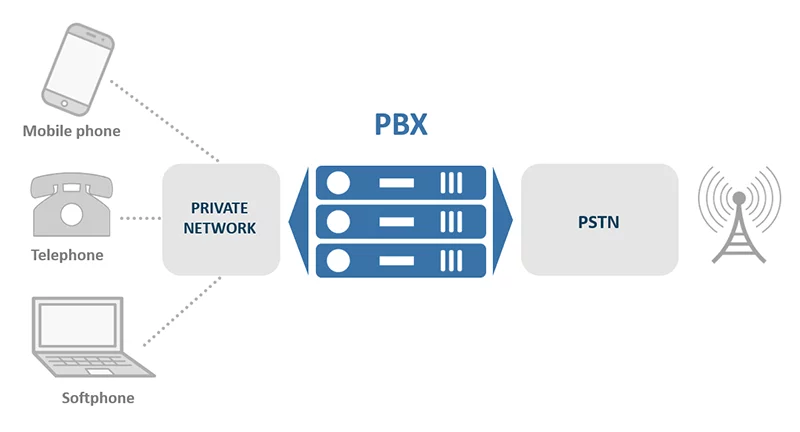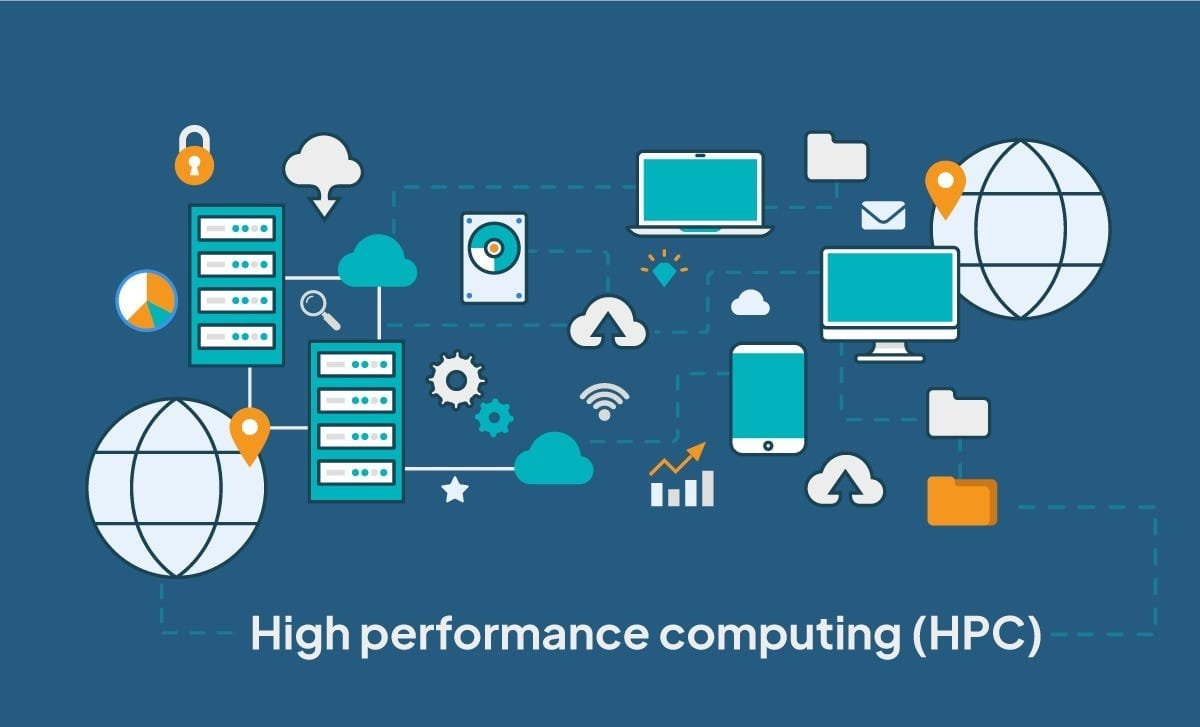“If someone asks me what cloud computing is, I try not to get bogged down with definitions. I tell them that, simply put, cloud computing is a better way to run your business.”
–Marc Benioff, Founder, CEO, and Chairman of Salesforce
As so rightly said by Mr. Benioff, cloud computing is one of the best ways to run a business in today’s competitive world. Cloud computing is the future here. Even other applications use cloud computing services to provide great customer satisfaction.
Cloud computing is an application-based software infrastructure. This software stores data on remote servers, which can be accessed through the internet. The computing services include servers, storage, networking, database, analytics, software, and intelligence. They offer fast innovation, flexible resources, and economies of scale.
Cloud computing is the technology of the future and the future of technology.
Cloud computing has some prominent benefits in today’s world. It is very useful for businesses today, with all the advancements, to stay relevant with the times. Examples of cloud computing services or cloud computing service provider companies are Amazon Web Services by Amazon, Microsoft Azure by Microsoft, Google cloud platform by Google, IBM, etc. Gmail, Google Drive, and even Facebook and Instagram use cloud computing services to save their data.
The user sends their data to a cloud-hosted server, and it stored the information for later access.
Cloud Computing Consultants believe that cloud computing or cloud services have gained wide popularity as a term in the last few years. With companies today having big data Solutions and ample information to save and use, it is getting difficult to save this data in an in-house server and system. The solution to this issue has always been present but just recently widespread, cloud computing. As long as one has internet the cloud services work and save a lot of time, energy, and material by saving this data on the cloud.
Cloud computing is divided into two main segments.
1.) Deployment model
2.) Service model.
There are numerous benefits of using cloud computing. Some of them are:
- Cost-saving:
The cloud services have a pay-as-you-go system, so the company won’t waste money on the services they don’t want. This saves money if the company doesn’t use the services as you haven’t paid anything extra. This service does not make the company waste its investment or resources. Its cost-effective nature is what attracts the companies in investing.
- Security:
Cloud is one of the most secure systems to use for the storage of data. The data on the cloud is encrypted. And thus, this makes it hard for any sort of data leak. Also, the user can set the security standards in settings. And also, it’s the job of the cloud host to lookout for full-time security.
- Mobility:
Cloud is accessible across any device, and thus, it makes working from home much more accessible. For people who live far from the workplace or in a different city and have work from home, the cloud makes accessing data more accessible and faster. The data can be accessed at any time in any place, and thus connecting with the staff or client at any hour is possible.
- Insight:
Clouds have inbuilt options of analytics that analyze the stored data and derive meaningful insights on the same. These insights help the company in deciding its future plans and see the progress of the company. The right cloud computing solution saves time of sifting through the data kernels for insights and analytics and derives meaningful insights to help the company.
- Increased collaboration:
When the team is big, collaboration makes it easier to communicate and work together. Cloud computing makes this process easier. With ease & security surety, teammates can review as well as share data on the cloud. Any member can view any information at any time. Some cloud-based services even provide options for organization collaboration like Microsoft Teams.
- Quality control:
When more than one person is accessing the data, errors are prone to be made. The quality control on the cloud makes it easier to avoid such mistakes. It is also helpful when more than one version of a file is created. It deletes the duplicate versions avoiding confusion and havoc. The original quality of the data is maintained, and duplication is avoided with the help of quality control in cloud computing services.
- Disaster recovery:
Disaster recovery in cloud services is super-fast and helpful. Any kind of power cut or emergency can lead to data loss. This data is stored in the cloud and the recovery is in 4 hours or less. This helps the enterprise as the data here is large and its loss can lead to other issues.
- Loss prevention:
If the company doesn’t have cloud computing services, all its data is saved somewhere on the computer. It doesn’t create an issue in the short run, but this can create a lot of trouble in the long run. If there is any damage to the files or the computer, all the data is lost, and no recovery is possible. With cloud computing, no such issue arises. All the data is saved on the cloud, and recovery is easier. It can be accessible from any device with internet connectivity.
- Automatic software updates:
The software here is updated and refreshed automatically rather than waiting for the IT department to do it manually. This saves a lot of time and the IT department’s efforts over such small things. Companies need fewer IT consultations and resources with this system.
- Competitive edge:
Cloud computing being the new and future-oriented technology, gives companies a competitive advantage over those who don’t use it. Data saving and analysis becomes easier and faster with just a few clicks of the button. This is an advantage in this fast and competitive world. Cloud computing is the technology of the future.
- Sustainability:
Companies have started using environmentally friendly things. Adapting Cloud computing is one of the best ways to do so. Using cloud computing services to save data means less usage of hardware drives or paper files, which is beneficial to the environment. It also results in less carbon footprint, cuts down paper waste and physical products. It also improves energy efficiency and reduces computer-related emissions.
- Adaptability:
Cloud computing can adapt to any changes along with endless possibilities created from its services. A firm can choose to change from a private to a hybrid cloud or choose to expand the storage capacity for its usage temporarily. Cloud computing can do all of this effortlessly to satisfy the firm’s needs.
- Better communication and teamwork:
Cloud-based solutions give a better customer experience and a better standard of customer service. Customers expect businesses to be attentive to their needs and their experience has become vital in today’s time. The businesses that fulfill this are much more likely to create long-lasting customer-relationship.
- Scalability:
Cloud scalability means the ability to increase or decrease IT resources as per needs to meet the changing demand. There are mainly two types of scalabilities: horizontal and vertical.
Vertical scalability includes scaling up and scaling down. Scaling up means adding IT resources to the cloud as per the needs. Scaling down means the removal of the resources to meet the needs.
Horizontal scalability includes scaling in and out. Here scaling in and out means adding the resources to the server to spread the workload across the machines, which increases the performance and storage capacity. This feature is especially beneficial to organizations with high availability services that require minimal downtime.
These are some of the most prominent features and benefits of using cloud computing services. Companies that want to step up their standards and bring out their A-game are likely to adopt new technologies and applications from the best cloud computing solutions provider.
Cloud computing is the technology of the future. It uses the latest updates and advancements to store and process the big data and draw meaningful insights that could help the company. All companies that have adopted this have had a competitive advantage over their competitors.

Michael Donald, a senior technical consultant at a leading cloud computing consulting company, Bitscape. He has unified experience in adding values to the existing technological architecture of various businesses. During his professional journey, he has tackled a wide range of challenges and has built the ability to work through challenging issues for any industry.















Leave a Reply